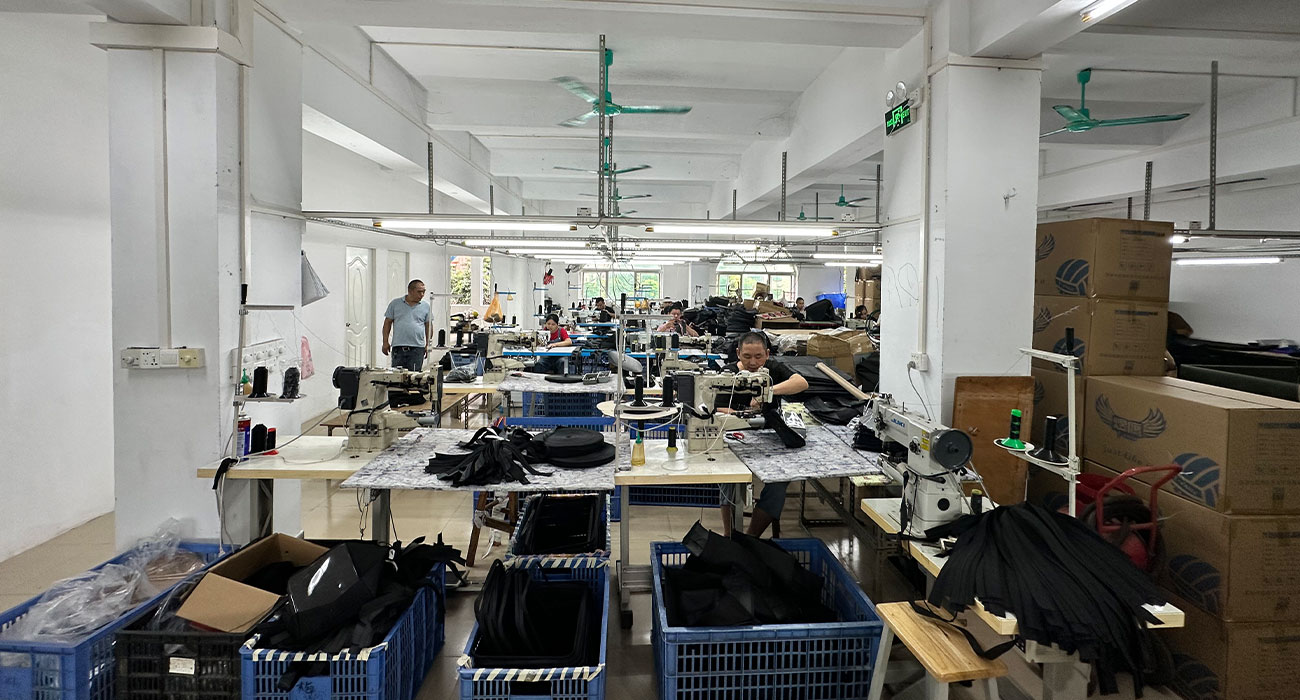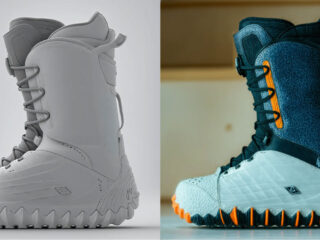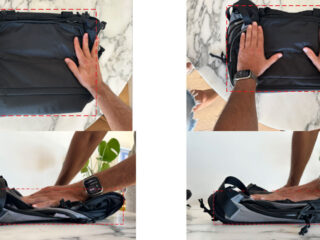Bringing a new soft goods product to market — whether it’s a bag, wearable, or lifestyle accessory — is an exciting journey. But one of the most critical steps is finding the right manufacturing partner. The manufacturer you choose will influence everything from product quality and production timelines to scalability, costs, and long-term brand success. For many entrepreneurs and companies, this step feels overwhelming. The global supply chain is vast, and choosing poorly can result in costly mistakes, delays, or worse — a product that never makes it to market.
At studioFAR, we specialize in guiding brands through this exact challenge. By combining soft goods prototyping, design for manufacturing (DFM), and supplier alignment, we help clients move from idea to production with confidence. This post will walk you through the essential considerations for finding the right manufacturer for your soft goods product, and why expert guidance during this process is so valuable.
Start With Prototyping: Don’t Rush to Manufacturing
Many entrepreneurs make the mistake of trying to find a manufacturer before they’ve fully developed their prototype. A manufacturer can only build what you specify, and without a fully tested prototype, you’re relying on guesswork.
This is why soft goods prototyping is such an important stage. At this phase, you’re able to refine your product’s design, identify issues early, and confirm functionality. Prototyping also ensures your vision translates into a manufacturable product. For example, small details like seam placement, fabric reinforcement, or zipper choice can impact both the look and the cost of your final product.
Working with a partner like studioFAR allows you to create prototypes that are not only visually accurate but also reflect design for manufacturing principles. That means we’re building with future production in mind — ensuring your prototype can scale without unnecessary costs or delays. Once you have a validated prototype, you’re in a strong position to approach manufacturers.
The Importance of Tech Packs and Clear Specifications
A tech pack is essentially the blueprint for your soft goods product. It includes detailed specifications such as dimensions, materials, stitching, hardware, and labeling. A strong tech pack is one of the most powerful tools you have when working with manufacturers because it reduces misunderstandings and ensures consistency across sampling and production.
Without a tech pack, manufacturers will interpret your design differently — leading to quality issues, wasted time, and added expense. Worse, you may lose control of your own design if it isn’t documented properly.
At studioFAR, we invest in creating professional-grade tech packs that speak the manufacturer’s language. This not only improves accuracy but also shows your manufacturing partners that you’re serious and prepared. The right manufacturer will appreciate this level of detail, making them more eager to take on your project.
Choosing Between Domestic and Overseas Manufacturing
One of the biggest decisions you’ll face is whether to manufacture domestically or overseas. Each option comes with its own set of advantages and challenges.
-
Domestic manufacturing offers closer communication, faster shipping, and often stronger intellectual property protections. It can also appeal to customers who value “Made in USA” or local production. However, domestic options are often more expensive and may have limited capabilities in certain product categories.
-
Overseas manufacturing (often in regions like China, Vietnam, or Southeast Asia) provides cost advantages, larger production capacity, and extensive expertise in soft goods categories. The trade-off is managing longer lead times, navigating tariffs, and ensuring quality control across distance and language barriers.
At studioFAR, we’ve worked with both domestic and international partners and can help clients assess which path makes the most sense for their bag, wearable, or soft goods project. Factors like budget, timeline, scalability, and brand positioning all come into play.
Vetting and Building Relationships With Manufacturers
Finding a manufacturer isn’t just about comparing prices. You need to assess whether they have the right expertise, capacity, and reliability for your specific product. For example, a factory that specializes in backpacks and luggage may not be the best fit for a wearable product with integrated electronics.
When vetting a manufacturer, consider:
-
Experience in your product category: Do they have a track record with similar soft goods?
-
Production capacity: Can they scale with your business as demand grows?
-
Quality standards: Do they follow ISO certifications or third-party audits?
-
Communication and responsiveness: Are they clear and timely in addressing concerns?
-
Transparency: Are they upfront about costs, lead times, and limitations?
Building strong relationships is just as important as the initial vetting. Long-term success comes from treating your manufacturer as a partner, not just a vendor. At studioFAR, we often act as a bridge between our clients and manufacturers, ensuring both sides are aligned on expectations, timelines, and quality standards.
Why Expert Guidance Makes All the Difference
For entrepreneurs, startups, and even established companies entering new product categories, navigating manufacturing alone can be risky. Design and development firms like studioFAR bring immense value by combining creative design expertise with deep knowledge of the manufacturing process.
We don’t just hand over a prototype and hope for the best. Instead, we:
-
Ensure prototypes are optimized for manufacturing.
-
Create detailed tech packs that reduce production errors.
-
Use our network of vetted manufacturers to match clients with the right partners.
-
Provide project management oversight, so deadlines and quality are maintained.
This combination of design expertise and production knowledge helps brands avoid costly missteps and move to market faster with confidence.
Final Thoughts
Finding the right manufacturer for your bag, wearable, or soft goods product is one of the most important decisions you’ll make. It’s not about finding the cheapest factory, but about securing a partner who can reliably translate your vision into reality at scale.
By investing in prototyping, tech packs, and expert design-for-manufacturing guidance, you set your project up for success. And by working with a design and development partner like studioFAR, you gain the advantage of experience, global connections, and hands-on oversight throughout the entire process.
Whether you’re launching your first bag collection, exploring wearable product development, or scaling a new soft goods accessory line, the right manufacturer will play a defining role in your brand’s future. With the right preparation and support, you can avoid costly mistakes and build a product — and a partnership — that lasts.
Contact Fernando A. Robert, Director of StudioFAR, and let’s discuss how we can bring your idea to life.
Feel free to schedule a call here:




